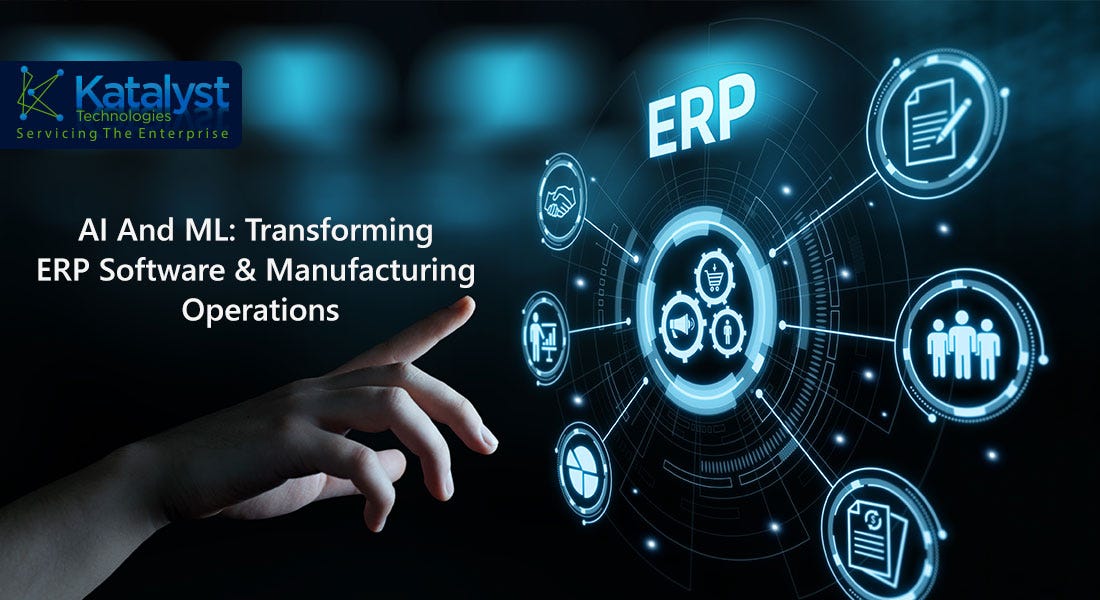In recent years, artificial intelligence (AI) and machine learning (ML) have made significant strides, transforming various industries and technologies. Among the areas undergoing a profound change is Enterprise Resource Planning (ERP) software. ERP systems, which centralize and streamline business processes, are increasingly integrating AI and ML to enhance their capabilities and deliver greater value to organizations. Here’s how these technologies are revolutionizing ERP software.
1. Enhanced Data Analytics
AI and ML algorithms can process and analyze vast amounts of data far more quickly and accurately than traditional methods. ERP systems equipped with these technologies can generate insightful reports, identify patterns, and provide predictive analytics. For instance, businesses can forecast sales trends, optimize inventory levels, and predict maintenance needs with greater precision. This data-driven approach allows for more informed decision-making and strategic planning.
2. Improved Automation
AI and ML are driving the automation of routine and complex tasks within ERP systems. Processes such as invoice processing, payroll management, and order fulfillment can be automated, reducing manual effort and minimizing errors. Machine learning algorithms can learn from historical data to optimize these processes further, making them more efficient over time. For example, AI can automate the matching of purchase orders with invoices, streamlining the accounts payable process.
3. Advanced Customer Insights
AI-driven ERP systems can analyze customer data to uncover valuable insights into buying behavior, preferences, and trends. This allows businesses to tailor their marketing strategies, enhance customer service, and develop personalized experiences. Machine learning models can segment customers based on their behavior and predict future needs, enabling targeted promotions and better customer engagement.
4. Predictive Maintenance
In industries with heavy machinery or equipment, AI and ML are transforming maintenance practices. ERP systems can use predictive analytics to anticipate equipment failures before they occur. By analyzing historical data and real-time sensor information, AI can identify signs of potential issues and recommend proactive maintenance. This reduces downtime and extends the lifespan of critical assets.
5. Smarter Supply Chain Management
AI and ML enhance supply chain management by optimizing inventory levels, improving demand forecasting, and identifying potential supply chain disruptions. Machine learning models can analyze various factors, such as market trends, seasonal patterns, and external events, to predict demand more accurately. This helps businesses maintain optimal inventory levels, reduce carrying costs, and improve supplier relationships.
6. Enhanced Fraud Detection
AI-powered ERP systems can detect fraudulent activities with greater accuracy by analyzing transaction patterns and identifying anomalies. Machine learning algorithms can continuously learn from new data and adapt their detection methods, making it harder for fraudsters to evade detection. This helps protect sensitive financial data and reduces the risk of financial losses due to fraudulent activities.
7. Personalized User Experiences
AI-driven ERP systems can provide personalized user experiences by adapting to individual preferences and usage patterns. For example, AI can suggest relevant reports, automate routine tasks based on user behavior, and offer tailored recommendations. This customization enhances user productivity and satisfaction, making ERP systems more intuitive and user-friendly.
8. Optimized Resource Allocation
AI and ML algorithms can analyze resource usage and performance metrics to optimize resource allocation. ERP systems can use these insights to recommend the best allocation of personnel, equipment, and materials based on current and projected needs. This ensures that resources are used efficiently, reducing waste and maximizing productivity.
9. Seamless Integration
AI and ML facilitate seamless integration of ERP systems with other business applications and technologies. For example, AI can enable ERP systems to connect with IoT devices, CRM systems, and e-commerce platforms, providing a unified view of business operations. This integration enhances data accuracy, streamlines workflows, and improves overall operational efficiency.
Conclusion
The integration of AI and machine learning into ERP software is transforming how businesses operate, offering advanced capabilities that enhance data analytics, automation, and decision-making. By leveraging these technologies, organizations can achieve greater efficiency, reduce costs, and gain a competitive edge in today’s fast-paced business environment. As AI and ML continue to evolve, their impact on ERP systems will undoubtedly grow, driving further innovation and value creation.
